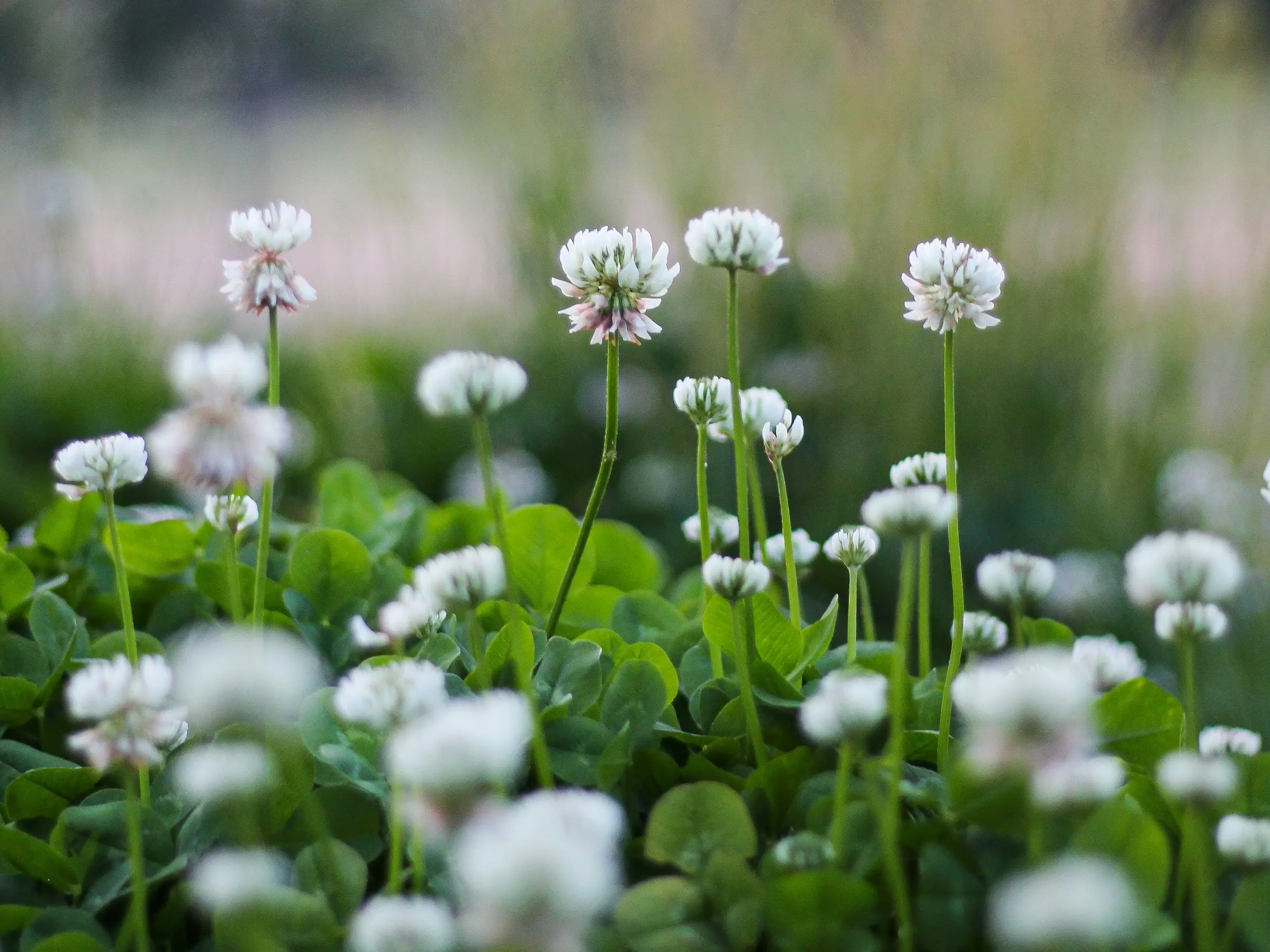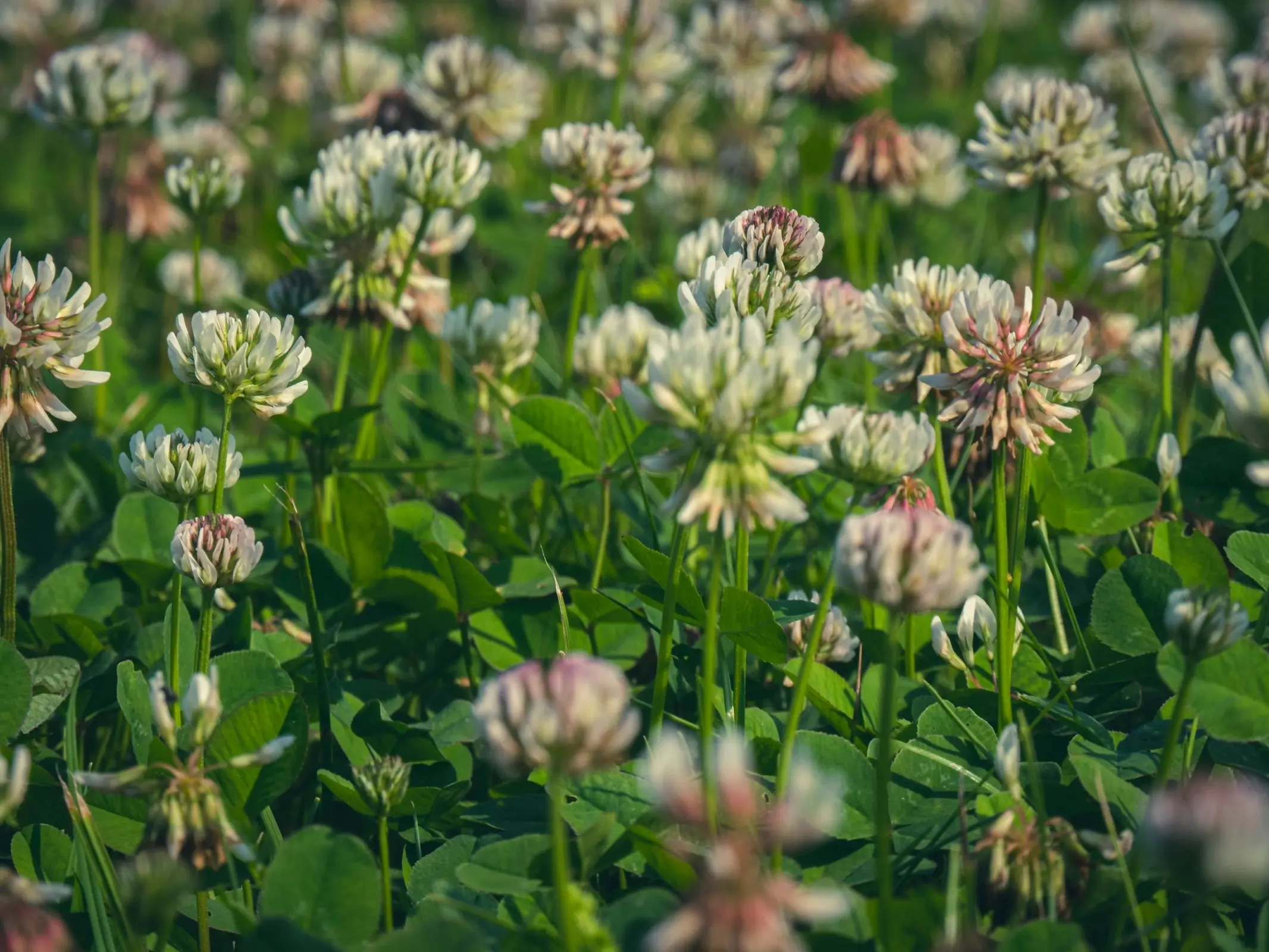
It’s Monday and toxic plant day for the third week and running. There is a long list of plants horses can’t eat and I’m bringing you a little more info and some pictures of each one to help you identify them. Today a closer look at the seemingly harmless (& incredibly common) Alsike Clover.
A Little About The Clover
Trifolium hybridum is Alsike Clover and although I couldn’t find any more common names, this clover can be found anywhere there is grass. It’s a short lived perennial with smooth stems, three-lobed leaves and pink/white flowers.
How Dangerous Is It?
It’s high palatability and abundance make it a common concern for horse owners who graze their animals. However from what I read it’s tough for them to eat enough to actually make them sick – but that doesn’t mean you should take precautions by keeping your grazers away from it.
All parts of the plant are toxic when dewy.

What To Look For
You know your animal the best, so you should know when something is amiss. Alsike clover can cause two different problems:
1. ‘Dew poisoning’ symptoms can include sensitivity to sunlight and ulcerations on affected areas, inflammation and/or ulcers in the mouth, colic, diarrhea & dramatic mood swings.
2. ‘Big Liver Disease’ symptoms include jaundice of light areas, loss of appetite, depression of central nervous system, lack of coordination, discolored urine and enlarged liver.
Learn More
Be sure to check out the Alsike Clover page to learn more about the plant and while you are at it why not check out more toxic plants?
*It should be noted that I’m not a veterinarian. This information is written specifically for horses and should be used for reference purposes only. If you think your horse has eaten something toxic call your vet right away.